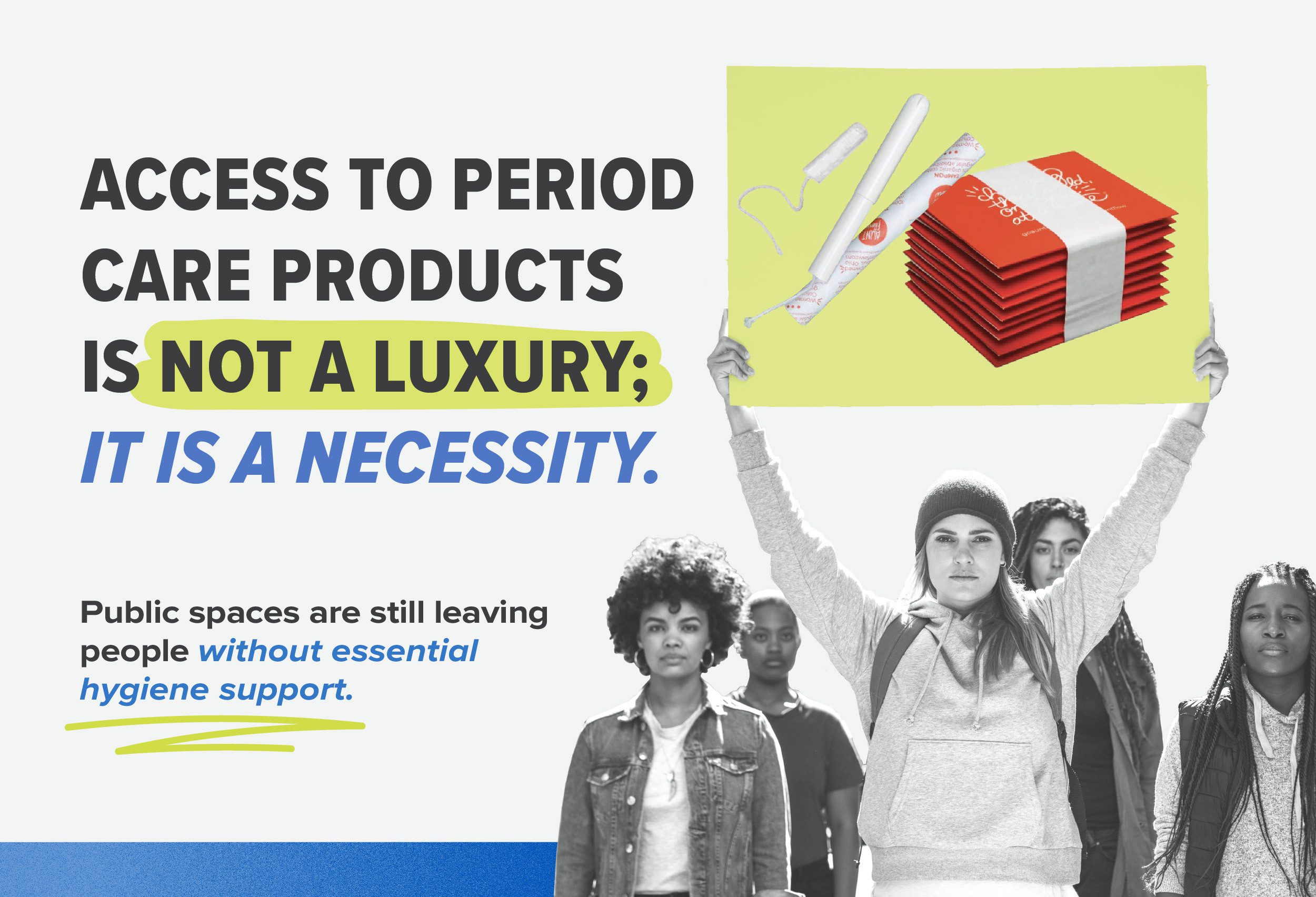Table of Contents
Updated on October 3, 2025
Most Facilities Still Do Not Provide Free Period Care Products
Access to period care products is not a luxury; it is a necessity. Yet, a new ISSA “End Period Poverty” Facility Survey reveals that only 38% of facilities provide free and accessible menstrual products in restrooms. This means the majority of workplaces, healthcare centers, and public spaces are still leaving people without essential hygiene support.
For employees, students, and visitors alike, this lack of access is more than an inconvenience; it is a matter of equity, dignity, missed classes, and lost productivity hours.
What the Study Reveals
The 2025 ISSA survey, published in Cleaning & Maintenance Management, highlights:
- 62% of facilities do not provide free products in restrooms
- Education facilities are leading, driven by legislation and student advocacy
- Commercial and healthcare facilities remain among the least likely to provide free access
- The biggest barriers are lack of awareness (36% had “never considered it”) and perceived cost
Why This Matters
At Citron Hygiene, we believe in healthier, more inclusive communities. Our period dignity solutions include:
- Free-vend dispensers that provide pads and tampons at no cost
- Hygienic, discreet disposal units in every stall
- Service programs to keep products stocked and waste safely managed
Beyond products, Citron Hygiene also supports advocacy and equity efforts:
- ISSA’s advocacy in the United States, raising awareness among facility leaders and policymakers
- The Native Women’s Association of Canada, supporting Indigenous women and girls disproportionately affected by period poverty
How Facilities Can Respond
The survey also offers encouragement: 91% of facilities that already provide products plan to continue. Facility managers, schools, and public sector leaders can act by:
- Assessing restrooms: are menstrual products as accessible as soap or toilet paper?
- Listening to users: customer and employee demand are top motivators for change.
- Exploring affordable programs: turnkey service solutions make implementation simple and cost-effective.
Access Means Dignity
The ISSA survey is a reminder that menstrual equity is not optional, it is essential. By making period care products free and accessible, facilities help end period poverty, reduce stigma, and create inclusive spaces.
At Citron Hygiene, we are committed to leading this change. Because when people have access, they also have dignity.
Learn more about our period dignity solutions.
Related posts:
- Closing the Menstrual Equity Gap: The Workplace Barrier We Must Address
- Menstrual Equity Bill A1349: Free Period Products in NJ Schools
- Chicago White Sox & Citron Hygiene Partner to Provide Free Period Products
- Why Period Products Should Be Free?
- Why Healthcare Facilities Need Robust Menstrual Hygiene Solutions
- Period Dignity Survey – High Demand for Free Period Products in Washrooms
- Menstrual Equity: It’s Time to Upgrade Your Menstrual Hygiene Management
- Why Manufacturing Facilities Can’t Afford to Skip Hygiene
